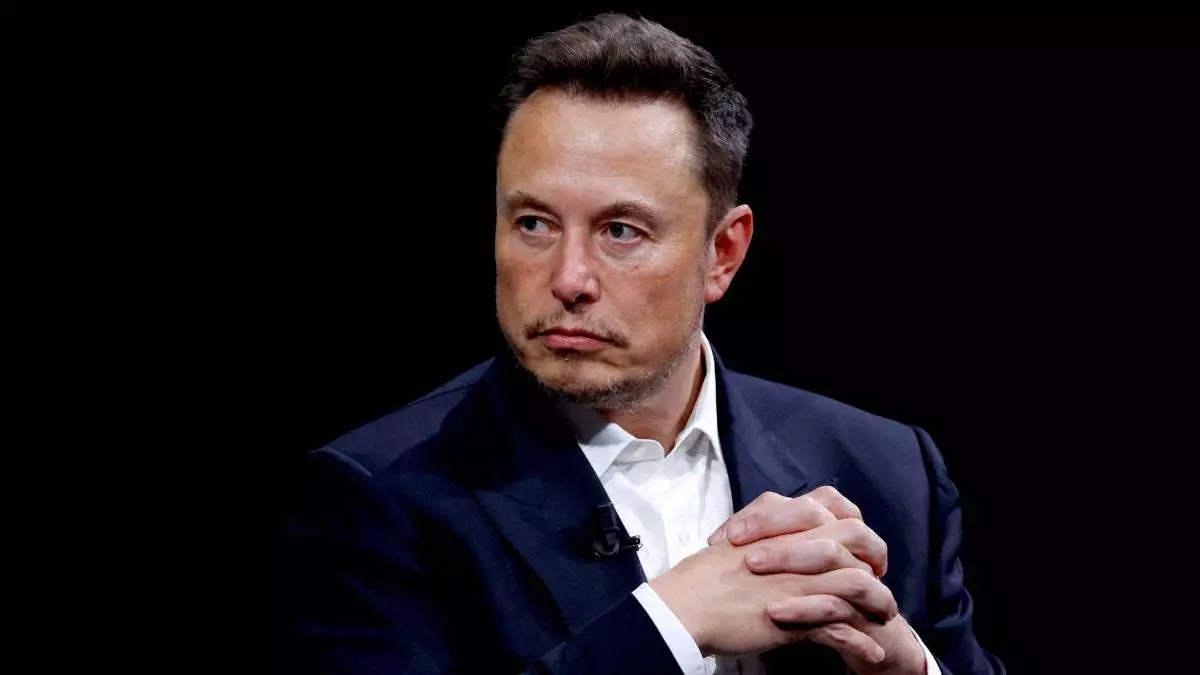The tumultuous relationship between the U.S. Securities and Exchange Commission (SEC) and Elon Musk has taken another turn, as the regulator announced intentions to impose sanctions after Musk failed to comply with a court-ordered testimony. This situation sheds light on the complexities of regulations in the tech and finance sectors, and underlines a fundamental issue: the scrutiny that comes with being one of the world’s most influential business figures.
The SEC is probing Elon Musk’s high-profile $44 billion acquisition of Twitter, specifically investigating whether he adhered to securities laws when he began acquiring shares in early 2022. The commission has flagged Musk’s late disclosures regarding his amassed stake in Twitter, which amounted to 9.2% before he made a formal offer to buy the entire company. According to SEC regulations, stakeholders are required to disclose when their ownership crosses the 5% threshold, a rule intended to maintain transparency within markets. Musk’s delay in announcing his stake has not only drawn ire from regulatory bodies but has also left many investors unsettled.
The SEC’s scrutiny of Musk is not new. He has faced repeated investigations and litigation from the agency, particularly following his controversial tweets regarding Tesla’s privatization in 2018. Regulatory bodies are tasked with keeping public companies accountable, and Musk’s brash approach to communication via social media has often led to allegations of manipulation and disregard for market norms.
In a development that has escalated tensions, Elon Musk was ordered to testify in connection to the SEC’s investigation but failed to adhere to the court’s mandate. Notably, he announced his absence just three hours before the scheduled testimony, citing an “emergency” relating to the launch of SpaceX’s Polaris Dawn mission. The SEC’s legal representatives characterized this behavior as disingenuous, asserting that Musk’s advanced knowledge of the launch timeline suggests he had ample opportunity to honor his legal obligations. According to SEC lawyer Robin Andrews, Musk’s excuse for non-compliance smells of “gamesmanship” and that such tactics warrant the court’s attention.
This situation raises critical questions about accountability for high-profile individuals. When someone of Musk’s stature allegedly sidesteps legal obligations, it sends a troubling message regarding the enforcement of regulatory standards. The SEC’s motion to hold Musk in civil contempt aims to underscore the need for seriousness in complying with investigatory processes.
Musk’s legal counsel, Alex Spiro, has been vocal in condemning the SEC’s actions as excessive. He contends that the potential risks to human life during the SpaceX mission justified Musk’s absence and insists that sanctions would be unwarranted. Spiro has reasserted Musk’s willingness to testify, with a new date set for October 3. The tension between Musk and the SEC has been palpable, as Spiro has claimed that the SEC is engaging in “harassment” against Musk, reflecting an ongoing dynamic of animosity between the entrepreneur and the regulatory body.
The contrast in the perspectives of Musk and the SEC can be seen as emblematic of a broader cultural fight. On one side, a figure like Musk represents innovation, ambition, and often a rebellious spirit, while on the other side, regulatory bodies like the SEC serve as a check against chaos and potential exploitation in financial markets.
The stakes of this regulatory skirmish extend beyond Musk’s individual case. They highlight the need for clearer communication between entrepreneurs and regulatory agencies. The SEC’s ongoing investigation into Musk is not just an isolated incident; it represents a broader discussion regarding the balance of power between business innovators and regulatory oversight in a rapidly changing technological landscape.
Musk’s negotiations with the SEC illustrate a defining aspect of corporate accountability in the digital era. As guidelines evolve to encompass the actions of influential figures in technology and finance, the implications could reshape how similar cases are handled in the future. The SEC’s pursuit of accountability is crucial to maintaining a level playing field in corporate governance—a principle that underpins investor confidence and market integrity.
The unfolding events surrounding Elon Musk and the SEC are not merely about one individual’s disputes but symbolize the ongoing tension between innovation and regulation. The outcome of these proceedings and the associated sanctions could set a precedent for future interactions between regulators and high-profile business leaders, shaping the narrative of corporate responsibility in the years to come. As this saga continues to develop, stakeholders across various sectors will be watching closely.


Leave a Reply